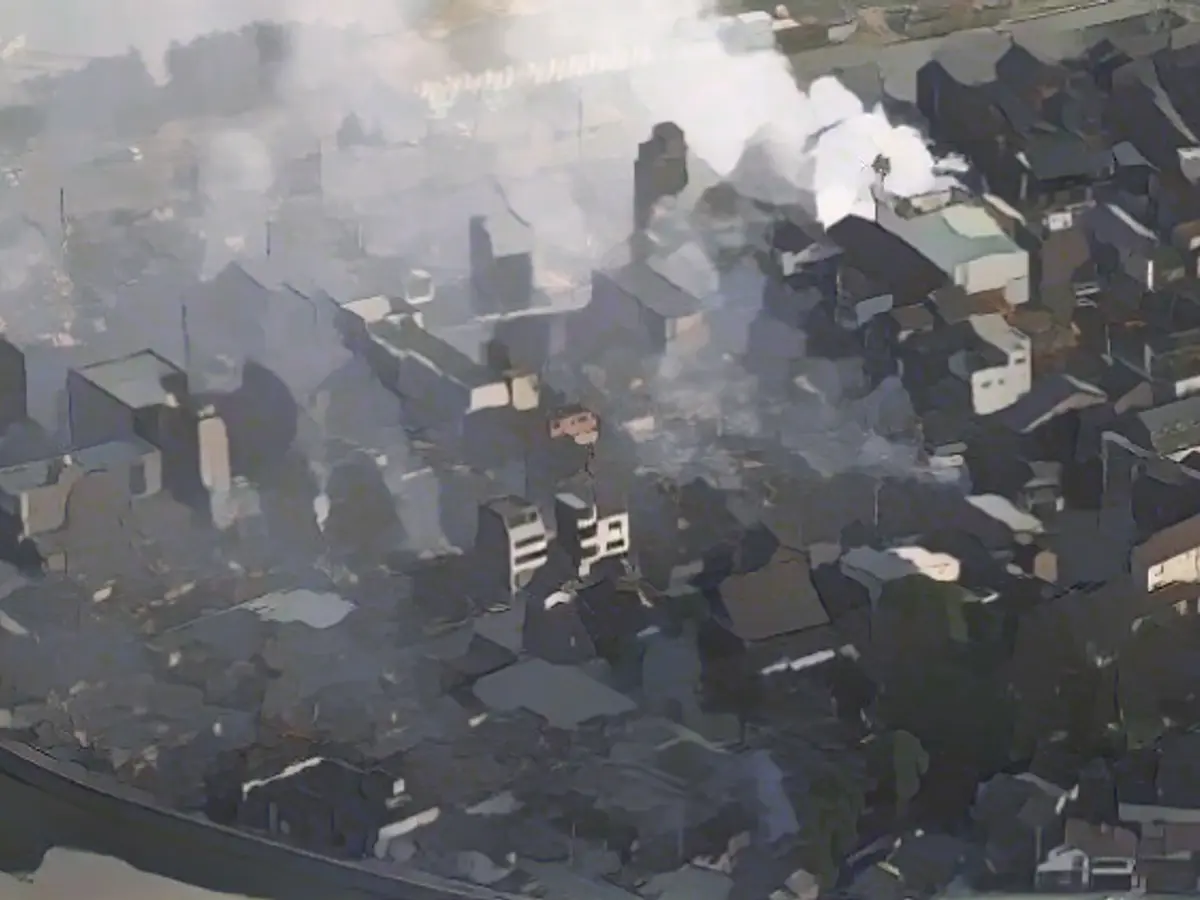Japan mourns more than 20 dead in series of earthquakes
Japan experiences several strong quakes. There are several deaths and a lot of damage. There is also a risk of tsunami at times. The local meteorological authority warns of further quakes in the course of the week.
The death toll from a series of strong earthquakes on the west coast of Japan has risen further. The Japanese daily newspaper "Yomiuri Shimbun" reported that at least 21 people died in the hard-hit prefecture of Ishikawa. The meteorological authority lifted a tsunami warning issued the previous day for the entire west coast of Japan. The tremors caused considerable damage.
Around 100,000 people were urged to seek safety during the New Year celebrations. Numerous houses collapsed or caught fire, roads were torn up and tens of thousands of households lost power. Several people suffered injuries. In the hard-hit town of Wajima in Ishikawa, more than 100 homes and businesses burned down in one neighborhood, according to local media reports. Low flames were still blazing in places on Tuesday morning and firefighters were still in action. Thick smoke hung over the area. Other houses had collapsed or were badly damaged. Around 1,000 people were accommodated at an air force base in Wajima and provided with blankets, water and food, the government announced.
Several tidal waves hit Hokkaido's coast
Meanwhile, the series of quakes continued. A particularly strong earthquake had reached a magnitude of 7.6 the day before. The epicenter was in the Noto Peninsula area of Ishikawa Prefecture. The weather authority then issued a strong warning for Ishikawa of a possible five-metre tsunami, which was later lifted. Lesser tsunami warnings remained in place for all other coastal regions in the west.
The quake was felt from Hokkaido in northern Japan to the southwestern main island of Kyushu. Several tidal waves of around one meter in height hit the coast. The tremors triggered landslides and trees fell onto roads. Several boats were keel up in harbor basins. There were reports of burst water pipes. The government in Tokyo set up a crisis team and the armed forces were called in to provide disaster relief in Ishikawa.
The meteorological authority warned of further strong quakes during the week, especially in the first two or three days after the particularly severe tremor on New Year's Day. In March 2011, a magnitude 9 quake triggered a massive tsunami that devastated large areas in the north-east of the country and killed around 20,000 people. A meltdown occurred at the Fukushima Daiichi nuclear power plant. The Far Eastern island kingdom of Japan is one of the most quake-prone countries in the world.
Read also:
- Floods: water levels remain critical in many places
- Snow chaos further restricts Bavaria
- Continuous operation in the flood areas
- Flood situation remains tense in many places
The International Red Cross and Red Crescent Movement has pledged to assist in the recovery efforts, with teams already on the ground providing aid and assessment services. Many streets in the affected areas are destroyed, making it difficult for emergency services to reach those in need. The Japanese government has declared a state of emergency in affected areas, calling for international support to help rebuild the destroyed houses and infrastructure. The earthquake series has caused significant damage to Japan's infrastructure and economy, with the cost of repairs estimated to be in the billions of dollars.
Source: www.ntv.de






